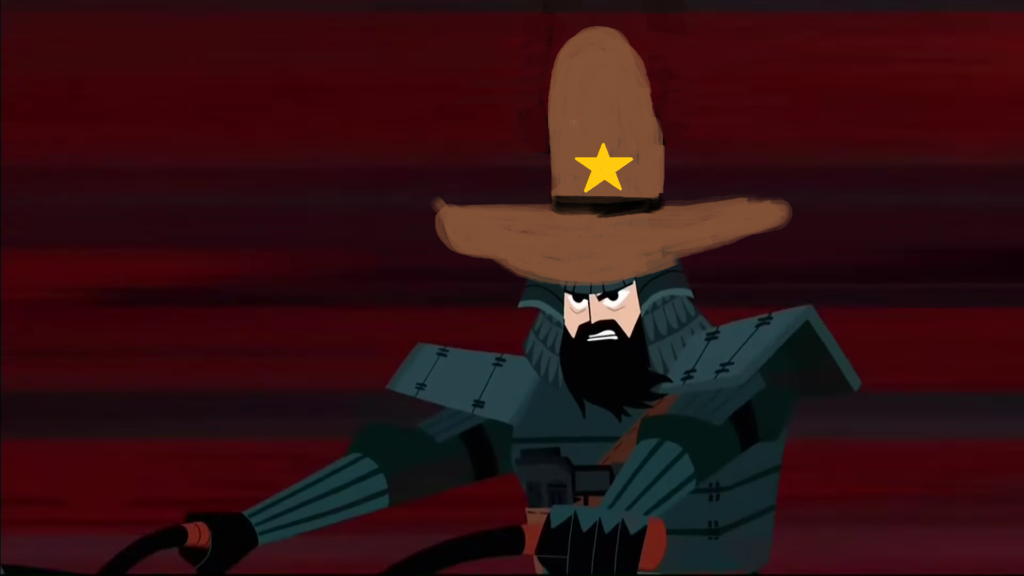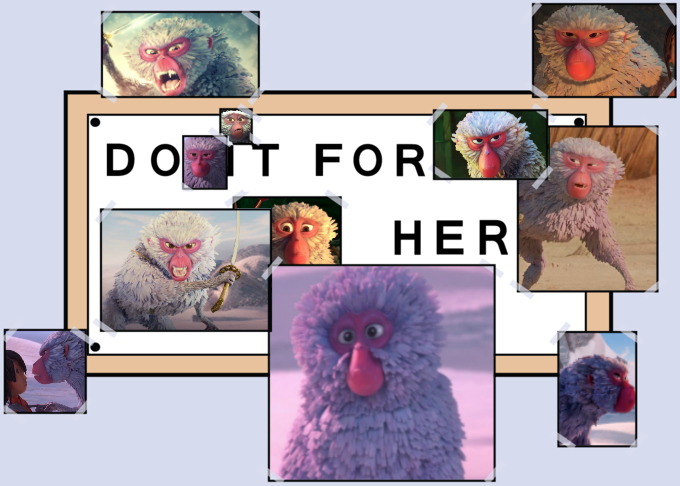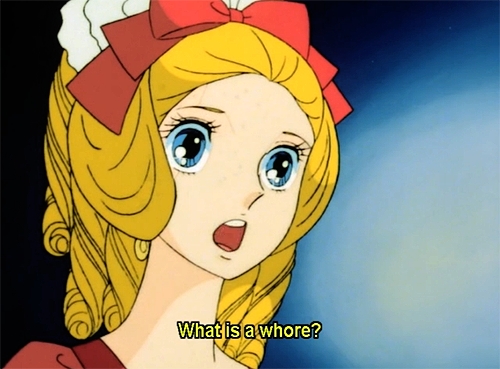02.13
Boy, are people hyped for the new Samurai Jack. Even the people who don’t care for the show have the mental thought noise of Phil LaMarr saying “Gotta get back, back to the past” in their head recently. None of that hesitant hype people had for the new Powerpuff Girls or Teen Titans Go that eventually soured and became seething rage that quickly overpopulated actual discussion of those respective shows. Just genuine awe and excitement over seeing a little show about a samurai fighting an evil wizard come back to the TV screen. Refreshing, especially for a show I never expected to come back. I just assumed the “Jump Good” episode was the ending and was done with it, while being mildly woken up by the occasional “Tartakovsky is in the next stage of production for the Samurai Jack movie” news every other year for the past decade. And to be honest, up until writing this article and doing the research, I haven’t watched many episodes of Samurai Jack for ages. Some I haven’t seen since they originally aired, but it’s cool that the new season’s given me an opportunity to re-open this trove.
A disgraced writer named Lawrence Miles once talked about the reason why Looney Tunes characters have lasted to this day, because they’re not written to be relatable, but to be iconic. Look at a purple bird running, and you automatically get the image of Road Runner without any further explanation, you just hear the “Meep meep!” in your head as soon as the thought enters. It’s kind of the same with Samurai Jack. I know there have been jokes about how Jack looks exactly like Professor Utonium, but there’s a nice simplicity in his design and Aku’s that says more with less. How you only need to look at a mere outline to be able to go “Oh, hey. That’s Aku!” Styling like that gives viewers an easy identity to put on the show. It’s a show built on creating not just relatable or fun characters, but ones that can be iconic in a sense. But then that leads to the other argument, that the show is too simple with how Aku’s a one-dimensional villain whose dialogue consists of either laughing or “Foolish samurai!” To that, I say the show’s DNA holds more than enough to contradict that claim.
From Yojimbo, to Lone Wolf and Cub, to Tezuka, to pre-crazy Frank Miller, Samurai Jack’s the obvious product of someone who’s read and watched all of that and uses them to put the puzzle pieces together for his own work. So many cardinal works consumed and digested, all to form one unified essence within this show. You can see it in the shots resembling less that of traditional animated fights and more like comic panels, the episode tributes to other artists, and many cheeky in-jokes like when Huntor from Dexter’s Lab made a cameo. Signs that Tartakovsky is more than happy to pay homage to past works to honor his current one. Even in talks about his new season, he’s absolutely gleeful to discuss how films as recent as Mad Max: Fury Road gave him ideas.
Despite being that open in what the show derives from, Samurai Jack also had a unique flavor most of its contemporaries didn’t have back then. Action cartoons in that era were more superhero fare like Justice League, or too self-aware and comedic to tell a dramatic story like Megas XLR. Samurai Jack didn’t have either of that, with Tartakovsky’s interviews emphasizing how he wanted to create a more vulnerable protagonist than the other fare. How the lack of dialogue for some scenes would help kids focus on the animation and artwork. I’m especially amused by this show’s answer to censoring violence, by just having Jack kill robots and cyborgs who bleed oil, even as enemies are mutilated or given visceral deaths, they always either explode or bleed oil. I’m almost sad the new season will probably relax that law, because it was charming. Like when Jack fights a bunch of reptilian warriors, and he can only cut off their arms because they’re the cybernetic part. That was cute.
Not to say it’s all perfect though, because there are some issues getting in the way when re-evaluating this show. Like a reference to the Austin Powers theme in the Mad Jack episode, timely then but scoff-worthy to hear now. The Sah-moo-rai episode, which while still funny to me, was somewhat embarrassing to watch given how unashamedly stereotypical he was. A little bit like watching a Wayans Bros movie. Or the one where Jack has to save all the teenagers from the evils of rave music, where he has to explain to the demon DJ that he thinks the music is bad-bad instead of slang bad. All of these little detours that have probably made fans scratch their heads when the thought of a pacifier sucking, Dr. Seuss hat wearing Jack dancing pops up in their brains. For every liter of pure focus, there was an ounce of that running in the series.
And it does beg to question what this show’s ultimate plan was. I always thought that by the last season, Aku’s forces were waning, given that he had to resort to getting formerly retired robots like X9, or increasingly incompetent bounty hunters to do his work. Leading to this idea that Aku will eventually lose merely out of his own failure than through Jack’s strength. I guess my idea was wrong considering how much of a sorry shape Jack is in. But still, it’s refreshing to know the final season will be more connected this time, with a definite endgame in store and not a finale where Jack takes care of a baby.


